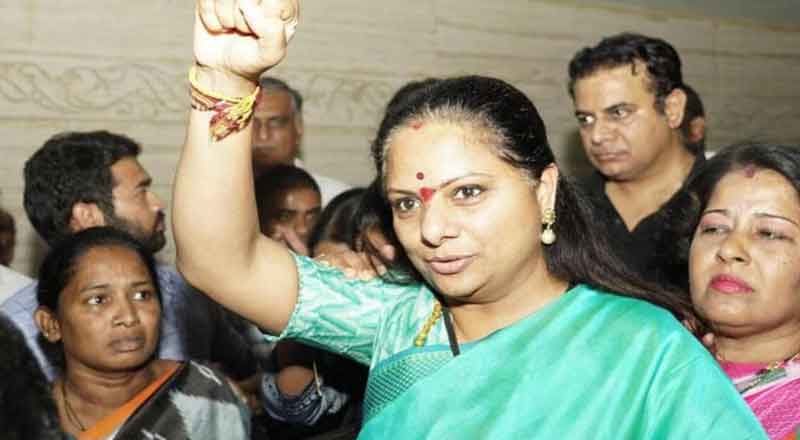- In a recent development K. Kavitha, a prominent figure in the BRS withdrew her petition challenging the summons issued by the Directorate of Enforcement (ED).
- The withdrawal of the petition comes on the heels of Kavitha’s arrest in connection with the alleged money laundering case linked to the Delhi excise policy.
- According to the ED, Kavitha’s involvement in the scheme was significant, positioning her as a key conspirator and beneficiary.
- The investigation into the Delhi excise policy scandal has seen multiple developments.
- The excise policy controversy has stirred political debate, with accusations of favouritism and corruption levelled against the AAP-led Delhi government.
In a recent development surrounding the Delhi excise policy controversy, K. Kavitha, a prominent figure in the Bharat Rashtra Samithi (BRS) and daughter of former Telangana CM K. Chandrasekhar Rao, withdrew her petition challenging the summons issued by the Directorate of Enforcement (ED). This move came during proceedings before a bench led by Justice Bela M Trivedi in the Supreme Court. Kavitha’s lawyer informed the court of their decision to withdraw the plea.
The withdrawal of the petition comes on the heels of Kavitha’s arrest in connection with the alleged money laundering case linked to the Delhi excise policy. The ED, in its claims, asserted that Kavitha and others conspired with top Aam Aadmi Party (AAP) leaders, including Chief Minister Arvind Kejriwal and former Deputy Chief Minister Manish Sisodia, to manipulate the excise policy in exchange for substantial payments.
According to the ED, Kavitha’s involvement in the scheme was significant, positioning her as a key conspirator and beneficiary. The agency alleged that illegal funds, amounting to Rs 100 crore, were funnelled to AAP leaders in exchange for favorable treatment in policy formulation and implementation.
Kavitha’s arrest followed intensive questioning and a raid at her Hyderabad residence. Subsequent searches yielded significant evidence, including mobile phones. However, Kavitha contested the legality of her arrest and challenged the remand order, citing violations of legal provisions.
The investigation into the Delhi excise policy scandal has seen multiple developments. The Central Bureau of Investigation (CBI) also conducted inquiries, leading to the filing of FIRs and subsequent ED action. Key individuals, including Hyderabad-based businessman Arun Ramchandra Pillai and various political figures, have been implicated in the case.
The ED’s probe revealed the existence of a cartel dubbed the ‘South Group,’ comprising influential figures like Kavitha and others. The agency alleges that this group orchestrated a scheme to influence the excise policy for their benefit, engaging in corruption and conspiracy.
The scale of the investigation is extensive, with nationwide searches conducted and several arrests made. Assets worth over Rs 128 crore have been attached, underscoring the magnitude of the alleged financial irregularities.
The excise policy controversy has stirred political debate, with accusations of favouritism and corruption levelled against the AAP-led Delhi government. Despite vehement denials, the ED and CBI have pursued their investigations, highlighting systemic flaws in policy formulation and implementation.
The annulment of the contentious excise policy and calls for a CBI inquiry underscore the gravity of the situation. As legal battles unfold and investigations continue, the case serves as a stark reminder of the challenges posed by corruption and malpractice in governance.
In withdrawing her plea, Kavitha’s legal strategy may shift as she navigates the complex legal terrain ahead. The fate of the Delhi excise policy case remains uncertain, with implications extending beyond the courtroom into the realm of public accountability and transparency in governance.
(With inputs from agencies)





